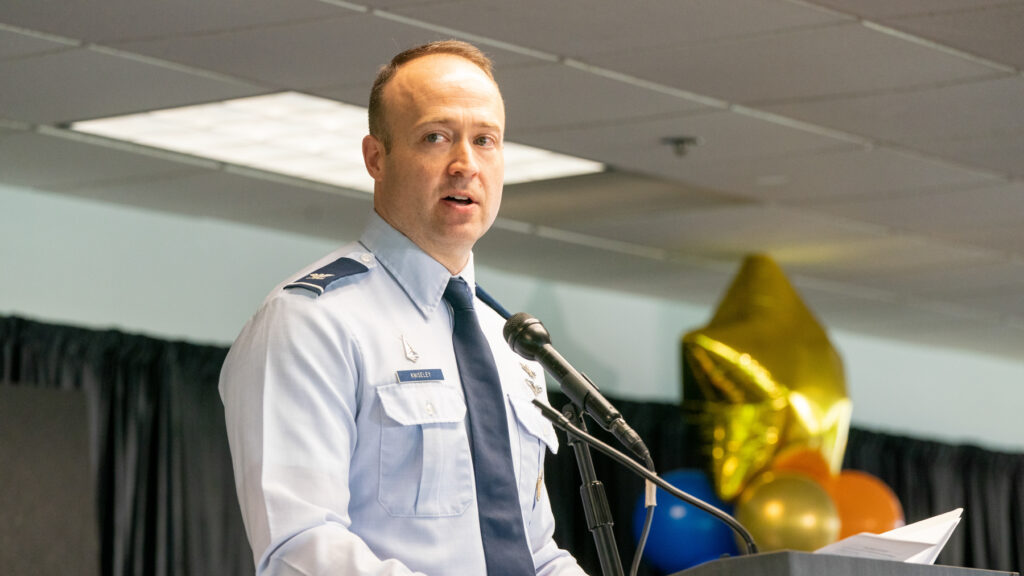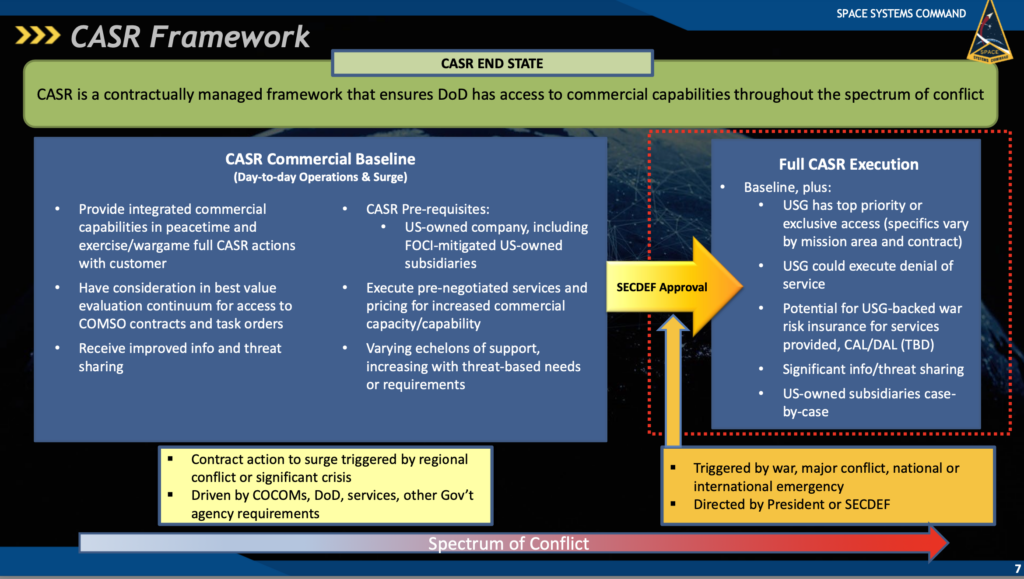
SMD 2024 — The Space Force is asking industry to answer a list of questions about its draft plan to create a commercial space reserve fleet, including whether the service’s proposed “incentives” for companies to volunteer are “sufficient.”
The service’s new request for information (RFI), released today, also seeks industry input on three alternatives for how contracting modifications might occur — under what are called “H Clauses” [PDF] — in the case that the US government decides to demand “direct denial of service to vendor customers or denial of service over designated geographic areas” to support military operations in times of crisis or war.
“The CASR framework is designed to ensure that the Space Force can leverage the commercial space industry from peacetime through the spectrum of conflict to enhance the resilience, capacity, and effectiveness of its national security space architecture,” the RFI explains.
Space Systems Command’s Commercial Space Office, headed by Col. Rich Kniseley, released its draft Commercial Augmentation Space Reserve (CASR) framework last July, and has since held two “reverse industry days” to engage industry on the proposal. CASR is the service’s take on the Air Force’s long-standing Civil Reserve Air Fleet.
A key difference with the Air Force version, however, is that because space systems provide a multiplicity of very different capabilities to military users, the Space Force has had to find ways to tailor CASR to a number of specific mission areas.

The CASR framework outlines two levels of potential industry support, the RFI elaborates, both of which require a company to be either US-owned or a subsidiary of a US-owned firm that has gone through the Foreign Ownership, Control or Influence (FOCI) mitigation process and received a stamp of US government approval.
The first level is designed for to support “day-to-day and surge” operations, relying on “pre-negotiated” company support activities. The second level is called “full CASR execution,” which is triggered by an order from the Secretary of Defense that the Pentagon now requires “top priority” support from commercial participants — at which point Space Force can demand that a company’s other customers be cut off (under an H-Clause) for a specific duration of time, according to the RFI.
Of particular interest to industry has been the Space Force’s plans for providing incentives to commercial firms to participate, especially given that fact that they may be required to give up income from other customers for unspecified timeframes. The RFI asks for comments on nine types of incentives proposed by the service, ranging from early research and development funding to preferred status for Space Force contracts to “financial protections” from losses incurred in case participant’s satellites are attacked.
In addition, the RFI lays out the Office of Space Commerce’s intended schedule for bringing CASR into operation, noting that the office hopes to “execute initial CASR pilot contract clauses with available funds” next month. The final goal is for the CASR program to reach initial operational capability by fiscal year 2026.